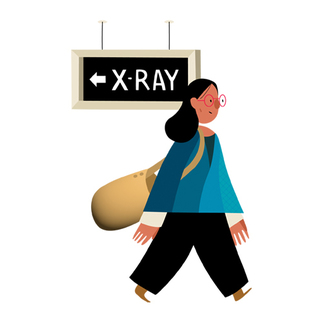 loading
loading
FindingsToo many diagnosesRethinking mammograms for older women.
 Alex Eben MeyerView full imageMammograms have long been considered one of the best screening tools for detecting breast cancer. But a new Yale study suggests that older women may need to reconsider whether the risks outweigh the benefits. Older women face unique challenges with screening, according to Ilana Richman ’20MHS—the leading investigator of this study, an assistant professor in internal medicine, and a health services researcher. Current national guidelines—including from the US Preventive Services Task Force, the leading medical authority on preventive screenings—give no recommendations for or against breast cancer screening for women 75 and above. Richman says her study shows how important it is for older women to consult with their health providers and consider the potential benefits, as well as potential harms, of this screening. At the very least, she says, they should be aware that further testing may be unnecessary.
The comment period has expired.
|
|